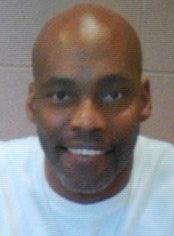Asked what condition is pervasive in cities where senseless murder is a daily occurrence, House Speaker Nancy Pelosi was quick with a word.
Despair.
In the neighborhoods where poverty and violence reign; in St. Louis where 11 children have been killed this summer; in Chicago; in Baltimore, where Pelosi grew up, there is a “level of despair” that helps explain why stray bullets are killing kids.
Pelosi, a California Democrat, was in St. Louis last week and spent an hour visiting with Post-Dispatch editors and reporters.
She wanted to talk about guns, mostly, but I wondered what she thought was the answer to the complete loss of hope in so many communities that are separated from economic opportunity.
People are also reading…
It starts with justice, she said.
That means access to education and health care and jobs. It means an end to mass incarceration and a resurgence of justice in a criminal justice system that often lacks it, she said.
On this last point, things are a bit tricky for Pelosi. She was in the House when the 1994 crime bill passed. Pelosi voted for it, as did most Democrats and about a third of the Republicans at the time. That “tough on crime” bill is blamed for much of the mass incarceration of black men in the U.S., which has contributed to the hollowing out of the neighborhoods now in such desperate straits. It hangs as an albatross around the neck of former Vice President Joe Biden, and is now campaigning against it as he runs for president.
“I do think we need to revisit some of what we did in the 1990s,” Pelosi said.
The same year that the now-oft-criticized crime bill passed, Lamar Johnson was charged with murder.
He was convicted a year later and has been in prison ever since.
Now, defense attorneys as well as St. Louis Circuit Attorney Kimberly M. Gardner are trying to set him free.

Johnson
The case, according to Gardner’s Conviction Integrity Unit, was flawed from the beginning, with both police and prosecutors pushing a false narrative highlighted by dishonest witness testimony that hid the truth.
The truth, Gardner said, is that Johnson is innocent.
On the same week Pelosi came to town, Johnson’s potential freedom got tied up in the debate between those who want to revisit the failed crime policies of the 1990s and those who want to revive them.
Representing the old way of doing things is Attorney General Eric Schmitt, a Republican. He was asked by Circuit Court Judge Elizabeth Hogan to represent the state in the case because of some as-of-yet unexplained conflict Hogan believes Gardner has in the case.
Never mind Johnson’s alleged innocence. He’s had his chance to file appeals and he lost. Hogan has no standing to make a ruling in the case, Schmitt has argued.
“Twenty-three years have not changed the fact that this Court has no power to hear Johnson’s motion or to grant a new trial in this case,” Schmitt wrote, pointing out that Johnson, from jail, filed his own motion for a new trial more than two decades ago.
Talk about despair.
A man stuck in prison filed his own motions for more than 20 years until attorney Lindsay Runnels of the Morgan Pilate law firm in Kansas City and the Midwest Innocence Project put some legal heft behind a real investigation of the case.
Then Gardner got elected, in a contest that was very much about “revisiting” America’s criminal justice system. Among her campaign promises was to establish a Conviction Integrity Unit to investigate old cases that might have put innocent people in jail.
Johnson’s case is the first to come from that unit.
Such units exist, in part, to help communities of color regain trust with the criminal justice system that has often unfairly targeted them.
But the judge and Schmitt, in effect, say that such units have no place in the criminal justice system. That’s the interpretation of 43 prosecutors from around the country, including St. Louis County Prosecuting Attorney Wesley Bell, who filed an amicus brief in the Johnson case, supporting Gardner’s position.
“As a practical matter, this type of disqualification based on a perceived ‘conflict’ would strip CIUs of any ability to investigate and remedy a wide range of past cases,” the prosecutors wrote. The brief was written by attorneys Charlie Weiss and Jonathan Potts of Bryan Cave Leighton Paisner, who are veterans of several actual innocence cases.
Most of those prosecutors have conviction integrity units in their jurisdictions, and such units across the country have led to hundreds of exonerations, including 58 last year.
So Johnson, already in prison for 25 years for a crime the prosecutor says he didn’t commit, wastes away behind bars in Jefferson City, while elected and appointed public officials argue over which version of justice — 1994 vs. 2019 — will be applied in his case.
It’s the worst kind of despair.
















